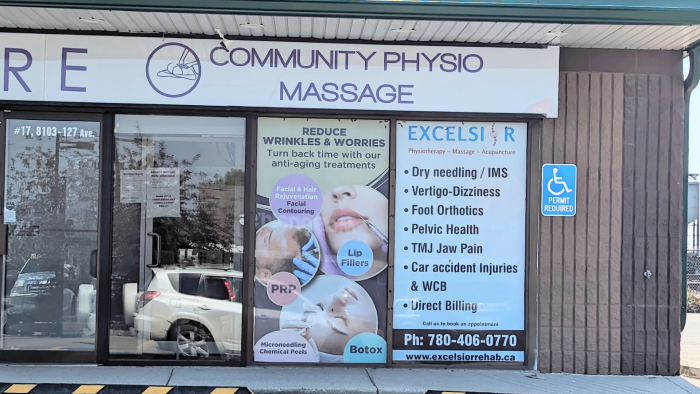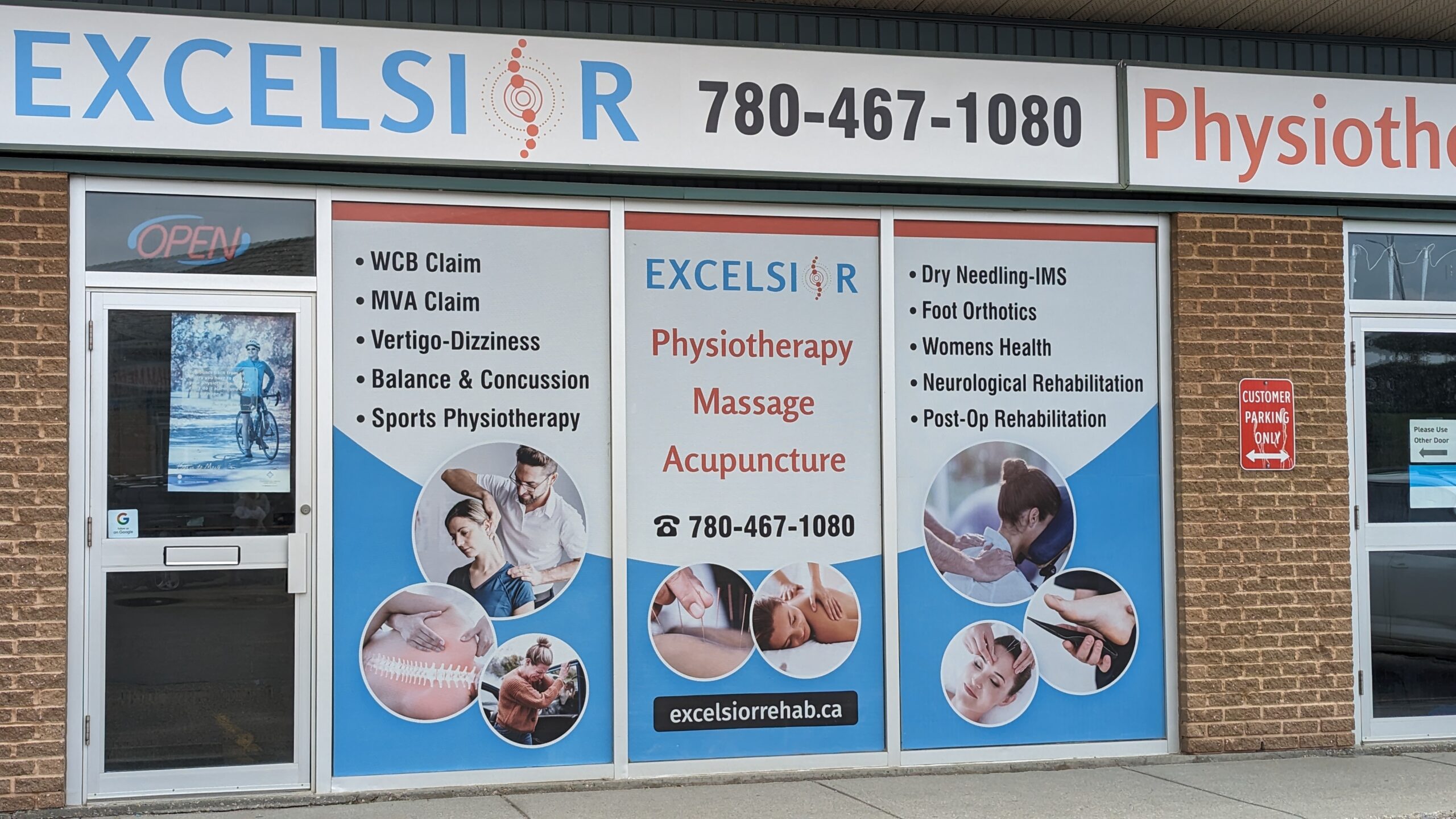Arthritis Pain Relief
Home » Arthritis Pain Relief
Arthritis Pain Relief Treatment in Edmonton
Psoriatic Arthritis: Causes, Symptoms, Treatment & Rehabilitation
Welcoming you to Excelsior Physiotherapy’s information resource on psoriatic arthritis.
What is Psoriatic Arthritis?
You might be of the idea that psoriasis is a skin disease, which caused severe rashes that are persistent and affects the skin all over your body. Psoriatic arthritis is a form of joint condition, which affects 7% of those who have developed psoriasis. This joint disease called Psoriatic arthritis can occur among individuals of all age groups, but specifically affected are those between the age group of 30 to 50 years. People with the skin condition psoriasis will develop this type of arthritis after several years. Psoriatic arthritis is a chronic condition, as one might have to manage both the stiff and painful joints along with scaly and itchy skin rash outbreaks.
This informative guide will focus on:
- The development of psoriatic arthritis
- How psoriatic arthritis is diagnosed
- How to treat psoriatic arthritis
- How Excelsior Physiotherapy’s rehabilitation program helps psoriatic arthritis
Location of Psoriatic Arthritis in Your Body
The symptoms of psoriatic arthritis are similar to that of spinal degenerative arthritis or rheumatoid arthritis. Only X-rays will reveal if you have developed psoriatic arthritis. The main trait of psoriatic arthritis is the destruction of bone along your joints and tissue inflammation surrounding it.
Types of Psoriatic Arthritis
There are three different types of psoriatic arthritis. They are:
- Asymmetric Arthritis: It affects only a few joints in your body. It doesn’t affect the same joints on either side of your body.
- Symmetric Polyarthritis: This type of psoriatic arthritis affects various joints on corresponding sides of your body. This polyarthritis condition is similar to that of rheumatoid arthritis.
- Axial Disease: It is also known as spinal arthritis, as it targets the shoulder joints, hip joints, and sacroiliac joint, where the end of the spine and pelvis meets.
For all these three types of psoriatic arthritis, the treatment module remains the same, as the types will help in determining the progression of the condition.
Causes of Psoriatic Arthritis
Though the exact cause of psoriatic arthritis remains unknown, a few factors can be considered for leading towards its development.
- Heredity: studies reveal that people with the same genes face a 50 times higher risk of developing psoriatic arthritis.
- Injuries: Some serious injuries incurred during road accidents or at the workplace can also cause psoriatic arthritis.
- Infections: A few infections like strep disease in kids might also lead to psoriatic arthritis. When the immune system reacts to the bacteria present in skin lesions, then it might also cause psoriatic arthritis.
Symptoms of Psoriatic Arthritis
- As already discussed, people having psoriatic arthritis might have developed psoriasis or skin rash with itchy and reddish skin lesions.
- The joints of your toenails and fingernails called DIP or distal interphalangeal joints will be affected.
- The affected toes or fingers will look like a sausage
- Dactylitis of inflamed bones
- Enthesitis means inflammation of ligaments and tendons
- Bone ankyloses of feet and hands cause stiff or frozen joints with an awkward look
- Inflamed spine joints without any symptoms, but visible on x-rays
- Spondylitis or inflammation of spine vertebrae
- Eye inflammation
- Around 5% will develop arthritis mutilans, which is a destructive form leading to finger and hand deformity
How Psoriatic Arthritis Is Diagnosed?
- Medical History: Your doctor will analyze your family’s medical history to know whether genetics have a role in developing psoriatic arthritis.
- Blood Tests: As the symptoms of psoriatic arthritis are similar to RA, your doctor will suggest blood tests to identify specific biomarkers or biological elements to identify it before the disease progresses. HIV tests might also be suggested if you have severe symptoms.
- Diagnostic Methods: Your physician would ask you to take Magnetic Resonance Imaging (MRIs), ultrasonography, and x-rays to diagnose psoriatic arthritis. Each test will provide different kinds of information about how your joints are affected, the health of your tissues and bones, and identify the early signs of development of inflammation in tiny joints and tendons. MRIs offer information like early joint erosion, tenosynovitis, and bone marrow oedema.
Treatment for Psoriatic Arthritis
The following are the treatments that are offered to treat psoriatic arthritis condition.
- PUVA Therapy: This therapy is a combination of psoralen and ultraviolet A rays that treats the skin lesions and inflamed joints to ensure the topical cream reaches the deep skin layers.
- Oral Medications: Your doctor will prescribe oral medications like NSAIDs or nonsteroidal anti-inflammatory drugs, DMARDs or disease-modifying antirheumatic drugs, and TNF anti-tumour necrosis factor agents based on the severity of the condition, degree of pain, and skin condition.
- Injections: Cortisone shots might be suggested to heal sore joints and for relieving extreme pain.
- Surgical Procedure: Surgery might be suggested for extreme cases of psoriatic arthritis with joint immobility and extreme pain.
- Physiotherapy: Your doctor will suggest physiotherapy treatment in Edmonton for ankle issues to enhance the strength and mobility in your joints along with medicinal treatment to get quick results.
Rehabilitation for Psoriatic Arthritis
Rehabilitation treatment for psoriatic arthritis offered by Excelsior Physiotherapy will help in managing this serious medical condition when used on par with your regular prescription medications. Though physiotherapy will not cure any medical condition, it will help in pain management while avoiding joint function decline. Our physiotherapy treatment in Sherwood Park focuses more on lowering the effects and symptoms of psoriatic arthritis rather than handling rashes or skin lesions.
First Physiotherapy Session
During your initial physiotherapy session at Excelsior Physiotherapy, we will require the following details, such as:
- When did you develop the first symptom of psoriatic arthritis?
- The painful joints
- How much does the inflammation and pain of psoriatic arthritis is bothering you?
- The severity of pain and the activities that makes it extreme or lowers it
- A family history of psoriatic arthritis
- The treatments that you have undergone in the past and present
- Your work-related activities and recreational activities
Posture and Alignment Assessment
If you have developed psoriatic arthritis in your lower extremities, then we will check the way you walk to determine, if your gait is affected. We make an overall alignment and posture assessment to know whether you maintain a bad posture. We suggest walking techniques and proper posture tips while discussing the option of using an aid for walking like a walking stick or cane to remove excess stress from the inflamed joints.
Muscle Strength Assessment
After making a complete assessment of your muscle strength to determine your range of motion, your physiotherapist at Excelsior Physiotherapy offering physiotherapy treatment in Sherwood Park will suggest an array of motion exercises.
Physiotherapy Exercises
- Muscle strengthening workouts: Muscle strengthening exercises and stretches for psoriatic arthritis will also be suggested to avoid muscle weakening as the disease advances.
- Cardiovascular Exercises: Our physiotherapy treatment for psoriatic arthritis in Edmonton clinic will comprise a combination of cardiovascular exercises to manage your psoriatic arthritis effectively while offering optimum joint support.
- Pool Exercises: Our physiotherapists in Edmonton will suggest you perform this set of exercises in a therapy pool with warm water, as it will be comforting for your aching joints.
- Weight Reduction Workouts: We also suggest weight reduction workouts to reduce the pressure of excess body weight on your joints.
- Exercises on Machines: If pool exercises are not your thing, then we will suggest exercises for psoriatic arthritis performed on an elliptical cycle, a stepper machine, or a stationary cycle.
- Transcutaneous Nerve Stimulation: For dealing with challenging psoriatic arthritis cases, our physiotherapist in Sherwood park clinic at Excelsior Physiotherapy will suggest TENS or Transcutaneous Nerve Stimulation for lowering your joint pain.
- Massage Therapy: Our massage therapy for psoriatic arthritis in North Edmonton will enhance your range of motion for joint mobilization and relieving pain. The heat radiated from massage lends a soothing feel and works well with physiotherapy treatments.
There are various treatment options for psoriatic arthritis which can help manage the symptoms caused by this condition, as it is not completely curable. When tackled together with your doctor’s advice, Excelsior Physiotherapy’s physiotherapist, and massage therapist, it is simpler to develop a customized psoriatic arthritis treatment plan along with a perfect psoriatic arthritis management program to live your life without any pain and inflammation.





